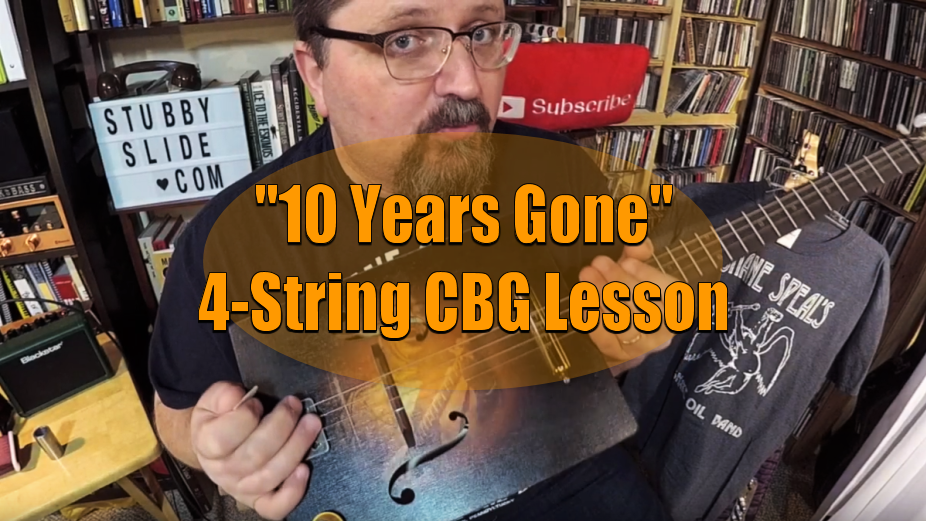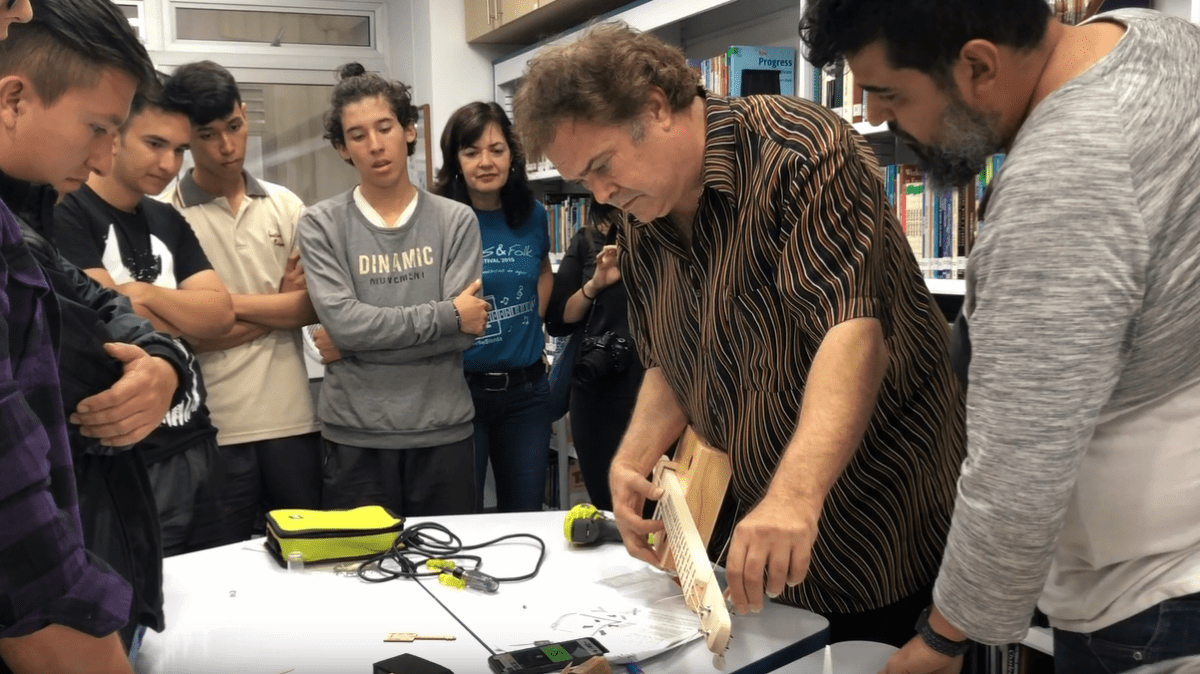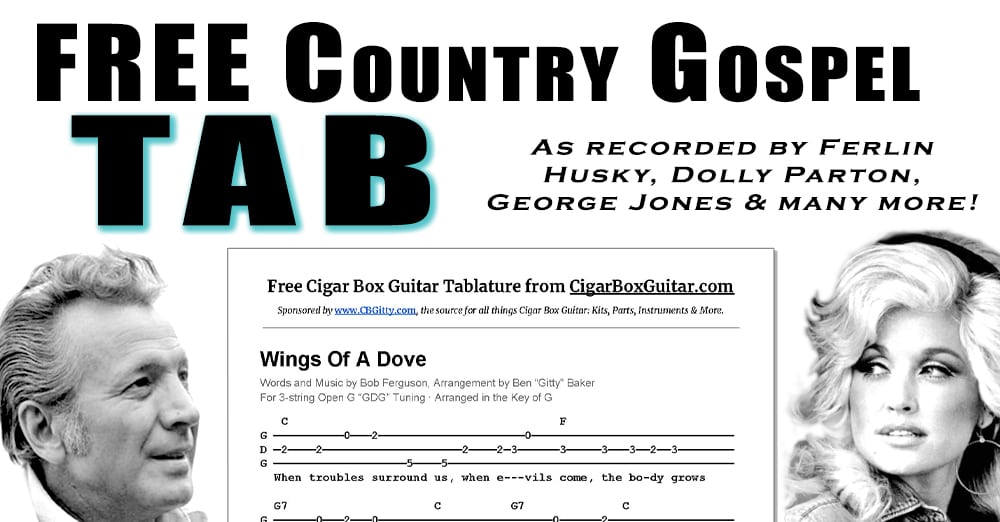The simple answer:
- Single Coil – 250k Vol+Tone Pot with .022uF Capacitor
- Humbuckers : 500k Vol+Tone Pots with a .047uF Capacitor
- Disc Piezos: 500kOhm Volume 250kOhm tone pot with a .010 Capacitor
The Nerdy Answer:
You have decided to add a pickup to your next Cigar Box Guitar and want to include knobs for Volume and Tone, but you aren’t quite sure which potentiometers to choose.
Have you looked into it and just see numbers thrown around like 250k, 500k and 1MOhm and you’re not quite sure what the difference is?
Have no fear! This article aims to break down some of the mystery of potentiometers and what they can do for your Cigar Box Guitar.
What are Potentiometers?
At the most basic level, a potentiometer is a device that offers resistance to an electrical current or signal.
In the case of guitars, this helps regulate the volume of the signal transmitted from the pickup, before it is sent to the amplifier.
There are two types of pots common for guitars, Audio and Linear. Guitar builders will typically use “Audio-taper” potentiometers, which gives a smoother transition moving from one end of the pot’s range to the other. Essentially, audio-taper pots change the audio signal more evenly as they move from 0 to 10.
On the other hand, Linear pots are less subtle. The resistance changes more abruptly and the effect is more noticeable right away.
Both can work well for guitars, so the choice is either one of what’s laying around, or preference on how you like to dial in the sound.
How are Potentiometers measured?

Potentiometers are measured in the units of kOhms. This value represents the resistance to the signal being generated by the pickup. Ultimately this controls whether more or less of the signal carries through to the amplifier, changing the overall sound.
The value for potentiometers is typically represented as: 250kOhm = 250,000 Ohms, 500kOhm = 500,000 Ohms, etc.
Higher resistance ratings for volume pots such as 500k will subtly change the frequency of the signal by allowing more treble to transmit through the circuit to the amplifier. This will help change the “brightness” of the overall sound, or how much treble the final signal has.
The science behind the effect can be a very involved subject and does have a bit of electrical sorcery attached to it. We’re only scratching the surface here, but there are some great resources out there for anyone wanting to dig deeper into the science.
What do the Values Represent?

This brings us into the common values that are used in guitars and why we use them for certain applications.
1MOhm: This stands for one mega Ohm, or 1 million ohms. These high resistance pots are sometimes used with disc piezos.
500kOhm: This value is commonly used for Humbucker and disc piezo pickups. The higher resistance allows more of the high frequency to translate to the amplifier, resulting in a brighter, warmer sound.
250kOhm: This is a common value used for single-coil pickups. The lower resistance cuts off some of the high-frequency coming from the pickup, resulting in a less-bright, sometimes muddy sound.

What about Tone Control?
A tone pot is essentially a volume potentiometer that has been fitted with a capacitor. When using magnetic (electric guitar) pickups, you can simply match the value of the tone pot to the volume. When using piezoelectric pickups, a 250kOhm pot paired with a 500kOhm pot usually works well.
The addition of a capacitor shunts some of the high-end frequencies to ground, yielding a less treble-heavy tone. The tone pot will then be able to control how much of the signal from the pickup is sent to ground through the capacitor, allowing the removal of gain, high pitched squeals and scratchy sounds.
Which value capacitor should you use?
Well, that will vary depending on the type of pot you are using, and how much of the signal you want to control. Common pairings:
- Single Coil – 250k Vol+Tone Pot with .022uF Capacitor
- Humbuckers : 500k Vol+Tone Pots with a .047uF capacitor
- Disck Piezos: 500kOhm Volume 250kOhm tone pot with a .010 Capacitor
Should you choose Full-size or mini?
The differences between mini and full pots will vary by manufacturers. The easiest example for potential variance can be evidenced by how smooth the taper is.
If the range of motion of the knob is too loose, a mere bump of the controls can cause a huge leap in volume. If it is too tight, the range of motion may be too limited which can sometimes cause stuttering.
Another consideration is how much space you have for components in the cavity of your box. Some like mini pots, for their smaller footprint. Others like bigger pots, as they can be easier to solder.

Summary
In this article, we have covered the basics of potentiometers including:
– The different Ohm ratings of potentiometers
– The basics on how they might affect the sound coming from your pickup
– What value of both pots and capacitors are common choices for when used with tone controls for certain pickups.
This is most certainly not a master list. We very much encourage you to explore and experiment with different pots and capacitors to discover new sounds.
To go even further, effects pedals or knobs like C. B. Gitty’s Psycho Knob can help transform your sound even further, opening up even more avenues of expression.
Whatever your choice may be, we hope that this article has cleared up some of the mystery behind volume and tone pots and how they relate to your Cigar Box Guitar.

![One Neck For Multiple DIY Instruments [VIDEO]](https://www.cigarboxguitar.com/wp-content/uploads/2020/02/Annotation-2020-02-25-151945-1200x674.png)



